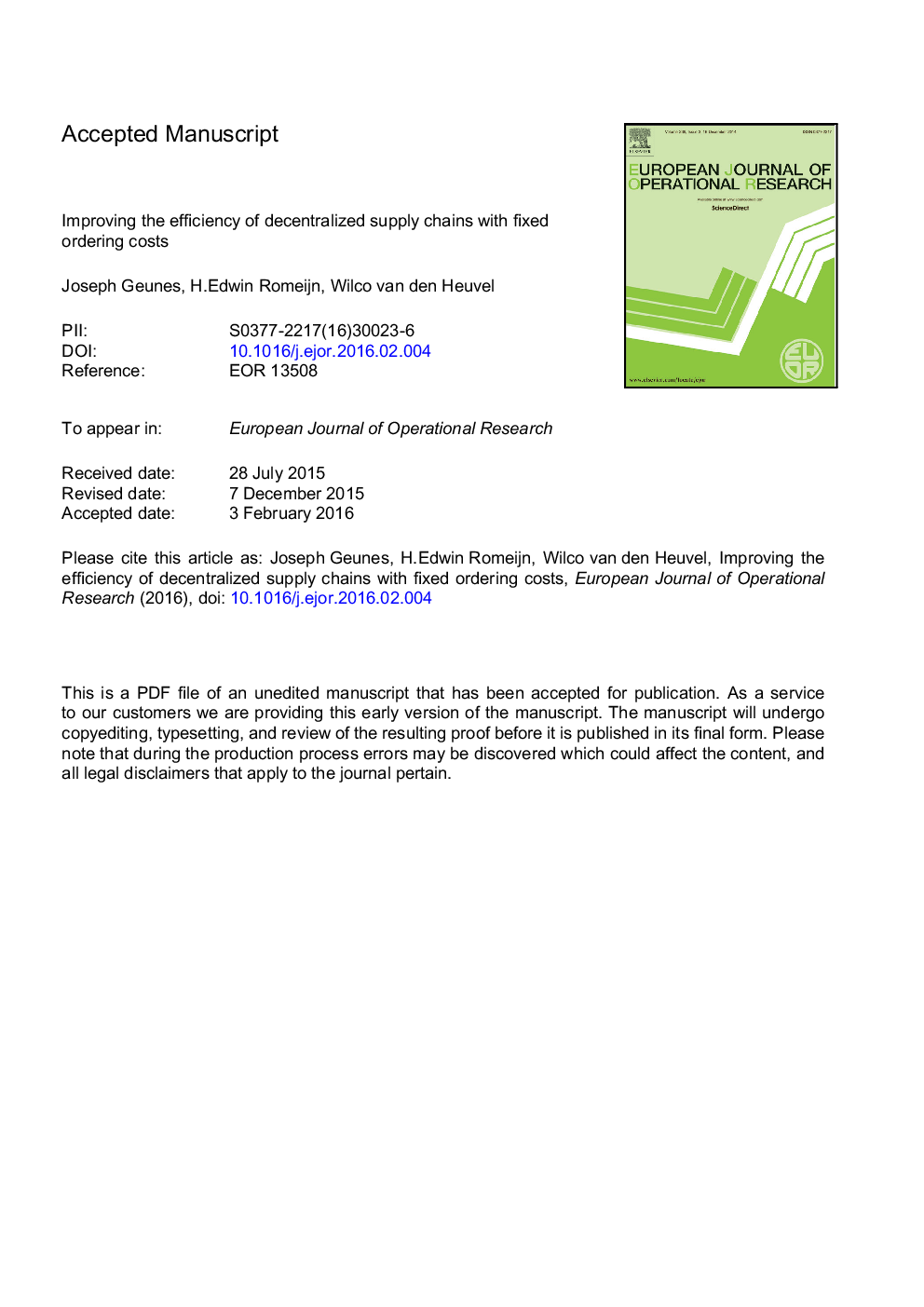| Article ID | Journal | Published Year | Pages | File Type |
|---|---|---|---|---|
| 6895650 | European Journal of Operational Research | 2016 | 38 Pages |
Abstract
In a decentralized two-stage supply chain where a supplier serves a retailer who, in turn, serves end customers, operations decisions based on local incentives often lead to suboptimal system performance. Operating decisions based on local incentives may in such cases lead to a lack of system coordination, wherein one party's decisions put the other party and/or the system at a disadvantage. While models and mechanisms for such problem classes have been considered in the literature, little work to date has considered such problems under nonstationary demands and fixed replenishment order costs. This paper models such two-stage problems as a class of Stackelberg games where the supplier announces a set of time-phased ordering costs to the retailer over a discrete time horizon of finite length, and the retailer then creates an order plan, which then serves as the supplier's demand. We provide metrics for characterizing the degree of efficiency (and coordination) associated with a solution, and provide a set of easily understood and implemented mechanisms that can increase this efficiency and reduce the negative impacts of uncoordinated decisions.
Related Topics
Physical Sciences and Engineering
Computer Science
Computer Science (General)
Authors
Joseph Geunes, H. Edwin Romeijn, Wilco van den Heuvel,
